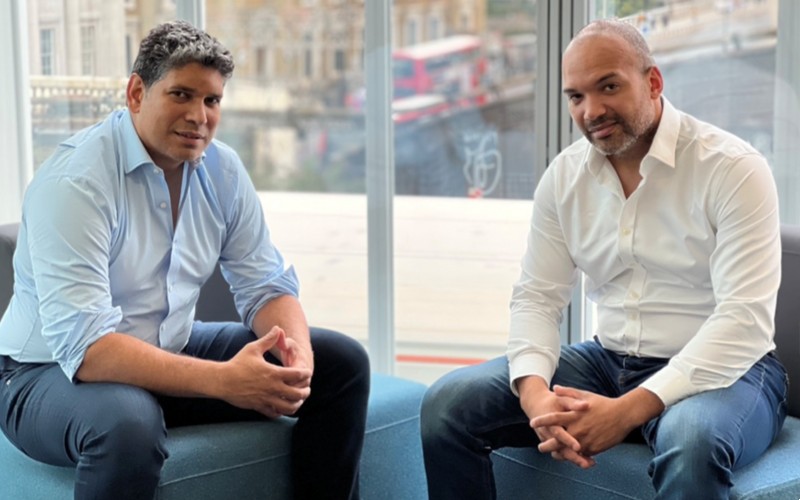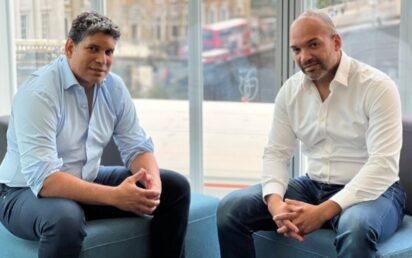A great idea doesn’t always pan out into a great business – but if you stay true to that original vision, you can give it every chance of success.
Capital markets specialist Khalid Talukder (pictured left), formerly of UBS, Citi & Deutsche Bank, founded DKK Partners with RBS and Citi veteran Dominic Duru in 2020. The FinTech company specialises in emerging markets and foreign exchange liquidity – allowing businesses to manage currency risks.
DKK saw 60% growth in revenue in 2022, surpassing £100 million.
“Have complete clarity on what you want to achieve when you found your business and focus on the outcome, which is the most important thing,” Talukder tells TechBlast.
“As the economy restores itself and the government supports the high-growth agenda, small and medium businesses can regain the confidence they need and get back out to the marketplace.
“SMEs should now utilise the confidence the market and customers are gaining to help grow their organisation.”
DKK has seen its headcount grow by 20% over the last year and has ambitious plans to further increase staff by an additional 50% in 2023. It is now embarking on a Series A investment round to strengthen its compliance processes and systems by implementing RegTech solutions.
‘Bootstrapped to £15m’ – things to consider when raising investment
The company has opened new offices in Ghana, Dubai, Cameroon and Ivory Coast, increasing its client base by 250% over the past 12 months. It has plans to open its doors in Spain, Cameroon, Senegal and India this year.
“Do your homework, know your audience and your competitors and be 100% crystal clear on your USP and what makes you different,” advises Talukder. “We have a passionate team who understand our business, with extensive knowledge of the local markets ready to hit the ground running.
“Having a universal understanding of the businesses and the wider market will allow for a successful launch in new geographical spaces.”
So how does it decide which markets to launch in next?
“Pick the ones you know intimately and have experience in, rather than going in blind,” he answers. “Analyse the data and feedback that is available to guide business decision-making, which will then allow you to better plan in new markets as you expand.
“In a time of economic uncertainty, data remains an incredible thing – and businesses that optimise the use of it will be the ones who effectively forward plan and prepare for the future.”
He adds that in emerging markets, it’s always beneficial to have “local boots” on the ground to build trust and credibility around your brand.
“Showing people on the ground is a sign of commitment and hence breeds comfort with your audience,” he explains. “In more developed markets, distribution of your product through technology is key.”


